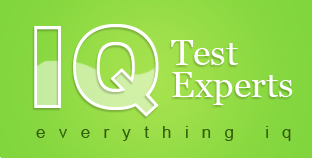Get Your Vitamins Right
If you are interested in improving or maintaining cognitive performance and reduce the throes of stress and aging, sharpening your memory, concentration and focusing powers and boasting of great IQ scores, you must enrich your diet with the right vitamin supplements.Good memory, which can be enhanced through vitamins, is one of the key requisites to reach your full potential and perform well on IQ tests. It does not warranty a high score on an IQ test, but it, can definitely power your performance. Most IQ tests examine your short-term memory. In many cases, people are asked to remember a string of random numbers. Most people tend to stumble around the seventh number. Many IQ tests require you to identify and remember patterns and routines. A sound memory is a smart catalyst if you want to score high on an IQ test.
Taking vitamins can boost your IQ. This is because you might be unaware of a nutrition deficiency, which cause a dip in your IQ level and mental output. Below are some vitamins you can take to improve your IQ and protect your brain :
Vitamin C
Touted as one of the most potential IQ boosters, Vitamin C has been shown in studies to help improve IQ test scores. Studies have shown that people who take Vitamin C supplements do better on IQ tests. While those who scored low were able to brighten their test results by taking more Vitamin C.
Apart from playing a vital role in tissue growth and maintenance, it has been shown to positively affect cognitive abilities. It contains something called "anti-oxidants" which help maintain and protect the integrity of your brain cells, and helps improve concentration and mental clarity. It also has detoxifying effects and maintains a good blood flow to the brain.
Food Sources:
oranges, lemons, kiwis, broccoli and all citrus fruits.Vitamin E
Also promotes concentration, precision and clarity. Vitamin E has an awesome antioxidant effect like Vitamin C, but it goes further in helping to reduce the blocking of blood vessels, including those blood vessels which supply the brain. By ensuring a good supply of nutrients to the brain at all times, your thinking is greatly improved.
Food Sources:
nuts, peanut butter, kiwi and spinach.Vitamin B Complex
Group B Vitamins are not called the Brain Vitamins for no reason! Vitamin B1 (thiamine) helps burn glucose into energy. Its lack can cause poor attention and concentration. Vitamin B3 (niacin) connected with mental health, helps maintain blood –glucose balance. Vitamin B5 (patothenic acid) is recognized as a potent memory booster.
Group B Vitamins are not called the Brain Vitamins for no reason! Vitamin B1 (thiamine) helps burn glucose into energy. Its lack can cause poor attention and concentration. Vitamin B3(niacin) connected with mental health, helps maintain blood –glucose balance. Vitamin B5 (patothenic acid) is recognized as a potent memory booster.
Group B Vitamins are not called the Brain Vitamins for no reason! Vitamin B1 (thiamine) helps burn glucose into energy. Its lack can cause poor attention and concentration. Vitamin B3 (niacin) connected with mental health, helps maintain blood –glucose balance. Vitamin B5 (patothenic acid) is recognized as a potent memory booster.
A recent Australian study showed that people who took Vitamin B6 (Pyridoxal Phosphate) and B12 (cyanocobalamin) supplements experienced remarkable improvements in their memory and cognitive abilities. Folic acid is believed to dramatically improve memory and also reduces the harsh effects of mental depression. People with high levels of Folic acid have low or no memory loss and incur minimum risks to diseases like Alzheimer's and Parkinson's. Deficiency of Folic Acid results in toxic accumulation of homocysteine, which clogs blood vessels and damages brain cells. Experts say they are vital for the health of the brain, improving the flow of blood in the brain, helping converting sugar into glucose, the its source of fuel, and helping to create the chemicals necessary for brain function. A deficiency of B Vitamins is often linked to lethargy and decreased mental acuity.
Food Sources:
B vitamins are particularly concentrated in meat, and other good sources are potatoes, bananas, lentils, Chile peppers, tempeh, beans, liver oil, liver, turkey, tuna, nutritional yeast, brewer's yeast, and molasses.Inositol
It is very good for clear thinking and mental endurance. It helps in energy production, and so you remain charged up and active during the day. Studies show a measurable increase in physical activity for up to five hours after taking it.
Food Sources:
liver and liver oils, brewer's yeast, dried lima beans, beef brain and heart, grapefruit, raisins, wheat germ, unrefined molasses, peanuts, and cabbage.Prior to subscribing to any vitamin or mineral supplement, it's important to consult your physician about any potential risks and side effects. Do your homework, and find the vitamins to boost IQ that will work best for you. It will be a great favor, to your brain and memory.
Related Articles
Which foods are right for improving your brain's neural network? Can rightly modifying your diet help you improve your IQ? Find out more about these brain foods..
For any network to be up and running, effectual communication is a must. Our brain too is a complex network of millions of inosculating nerve cells called neurons which need to effectively and efficiently communicate to transfer or/and process the message..
Brain Training
Smart tips and expert ways to train your brain and boost IQ. Unravel your treasure chest of IQ boosters.
Without exercise, the brain is prone to getting atrophied or destroyed. The benefits are both short-term (improved concentration and memory, sustained mental clarity, coherent thinking and co-ordination), and long-term (creation of a "brain reserve" that guards against Alzheimer's), ..

